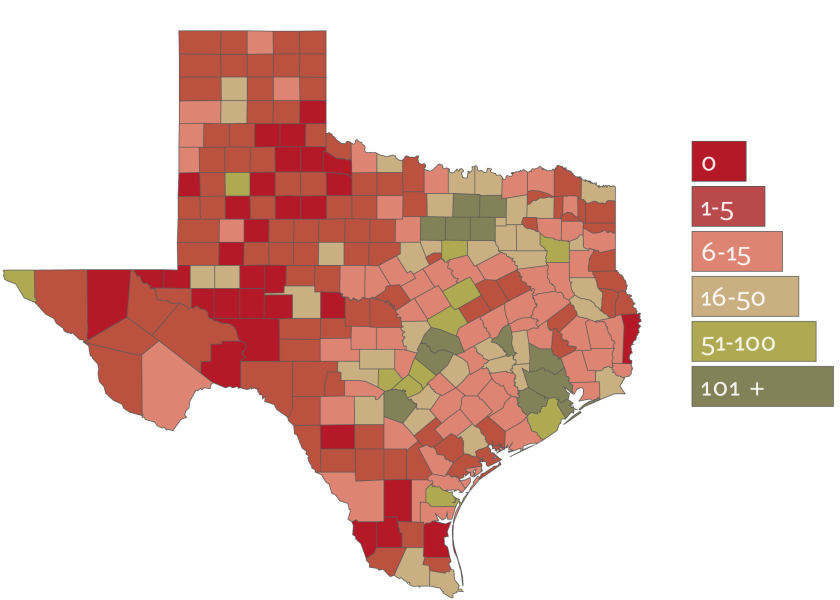Texas Board Approves Texas Tech’s DVM Degree

The Texas Higher Education Coordinating Board (THECB) on Wednesday (Dec. 11) adopted the recommendation of the Committee on Academic and Workforce Success (CAWS) to approve the request from Texas Tech University for a Doctor of Veterinary Medicine (DVM) degree program with a major in veterinary medicine.
This adoption advances Texas Tech’s initiative, approved in June by Gov. Greg Abbott as part of the state’s biennial budget, to open the School of Veterinary Medicine on the campus of the Texas Tech University Health Science Center in Amarillo. The degree program was submitted to the THECB by Texas Tech in February for review and was recommended for approval to the THECB this fall.
“With this approval by the Texas Higher Education Coordinating Board, Texas Tech University is one step closer to increasing veterinary care in West Texas and the state,” said Lawrence Schovanec, Texas Tech President. “The support of the governor, our local legislators, the civic leaders of Amarillo and the numerous donors who believe in this initiative have led us to this monumental day. Their support will allow Texas Tech to provide an affordable and innovative veterinary education that will enhance the veterinary workforce statewide and service to the large-animal industry and to rural Texas. I also want to express my appreciation to the members of the Texas Higher Education Coordinating Board and all their supporting staff.”
The School of Veterinary Medicine will open in the fall of 2021 and will enroll an initial pioneering class of approximately 60 students. The program also is designed to support graduate students involved in advanced research, offering an innovative, world-class curriculum to address the critical shortage of veterinarians, which is threatening small, regional and agricultural communities throughout Texas.
“Today’s action by the Texas Higher Education Coordinating Board is historic,” said Michael Galyean, Texas Tech Provost. “It is a critical milestone for our veterinary medicine program, and just as importantly, it expands access to affordable, world-class education for Texans and enables Texas to train more of its needed workforce. We are so thankful to the board for its actions today.”
Ground was broken in September after state leaders recognized the need for a new school of veterinary medicine. In June, Abbott signed into law the state budget for the next two years, which appropriated $17.35 million for the School of Veterinary Medicine in Amarillo that will go toward operational needs to get the school up and running.
Donors and civic leaders have pledged more than $90 million toward infrastructure, construction and scholarships for the School of Veterinary Medicine.
“The School is continuing to develop expeditiously,” said Guy Loneragan, dean of the School of Veterinary Medicine.
John Dascanio was added to the faculty for the School of Veterinary Medicine in October as senior associate dean. He will oversee the approved curriculum and student support services while overseeing the faculty and its development.
“Texas Tech broke ground on the facilities in Amarillo during September and will be announcing the addition of outstanding new faculty in the near future,” Loneragan said. “We also are working with the accrediting body on the steps needed to welcome the inaugural class in the fall of 2021. It is all hands on deck at Texas Tech as we look forward to opening the first new veterinary program in Texas in a century.”
Texas Tech’s model will recruit and select students with a passion to practice and succeed in small, agricultural and regional communities and utilize a curriculum focused on the competencies and skills necessary to be successful in practices that support these communities. The model eliminates the need for a costly teaching hospital and, instead, partners with the community of veterinary practices across the state to provide clinical learning through collaboration.
Located on the north side of the TTUHSC in Amarillo, the academic building will be named the School of Veterinary Medicine Amarillo Campus. In addition, a separate set of facilities that will serve as the large-animal focal point of the school will be named the School of Veterinary Medicine Mariposa Station. Together, these facilities support the school’s instruction, research and outreach mission.
The two-story academic building will consist of two learning wings. The east wing will consist of three large classrooms, breakout rooms and office suites on the first floor, with leadership and faculty offices and graduate study and work rooms on the second floor. The west wing will consist of laboratory and research spaces, as well as locker rooms, surgery suites, housing for small animals and support rooms for anatomy and pathology instruction. The west wing also will include a lobby where veterinary partners can drop off animals for examination and surgical procedures.







